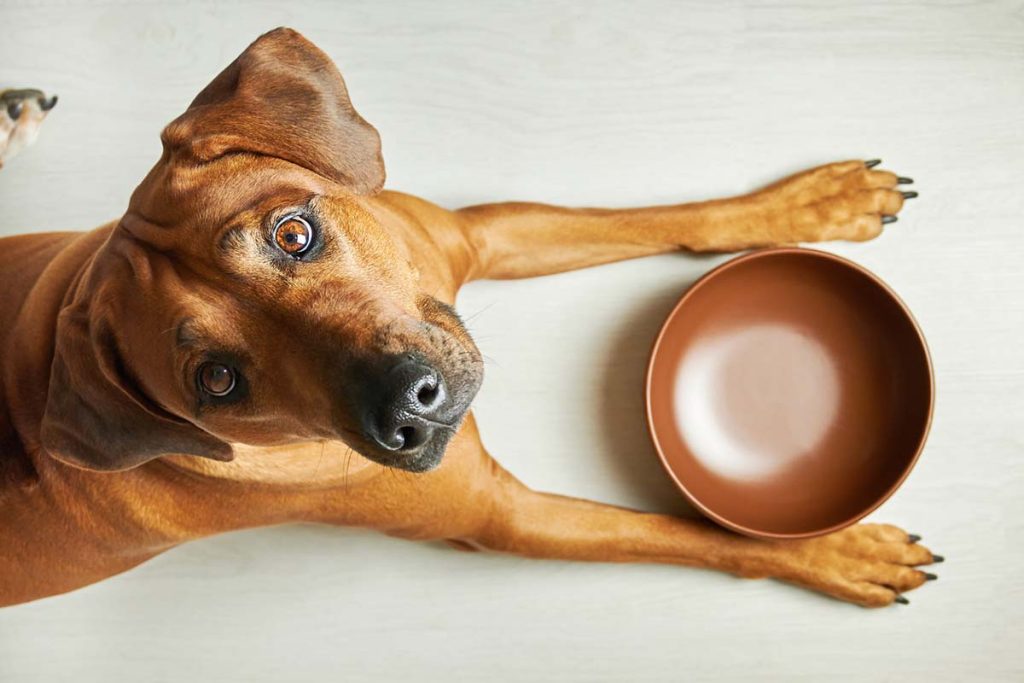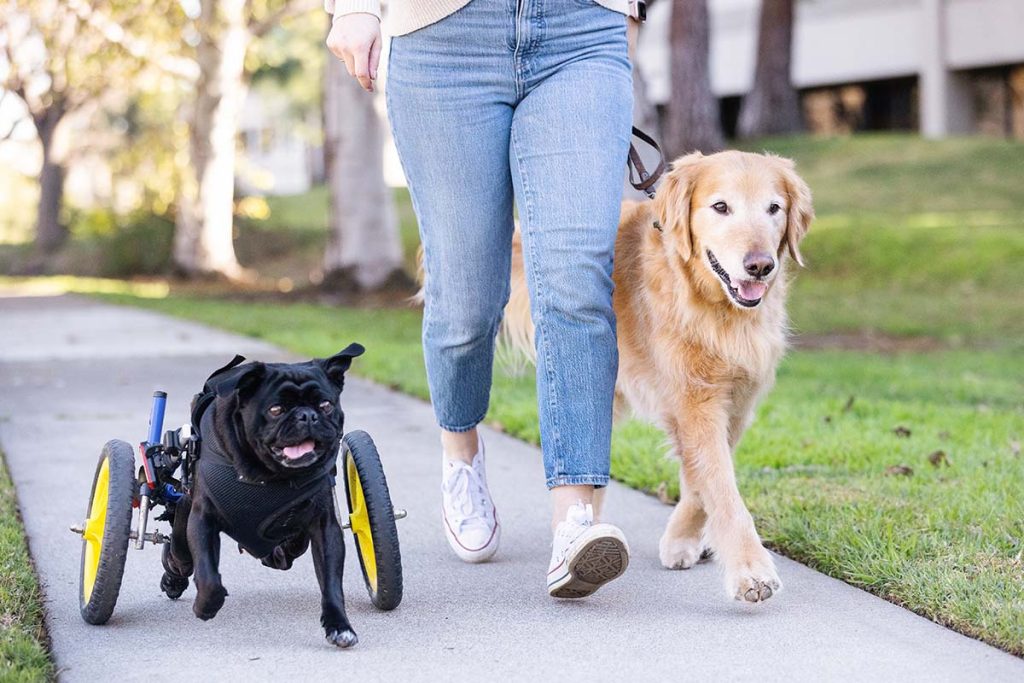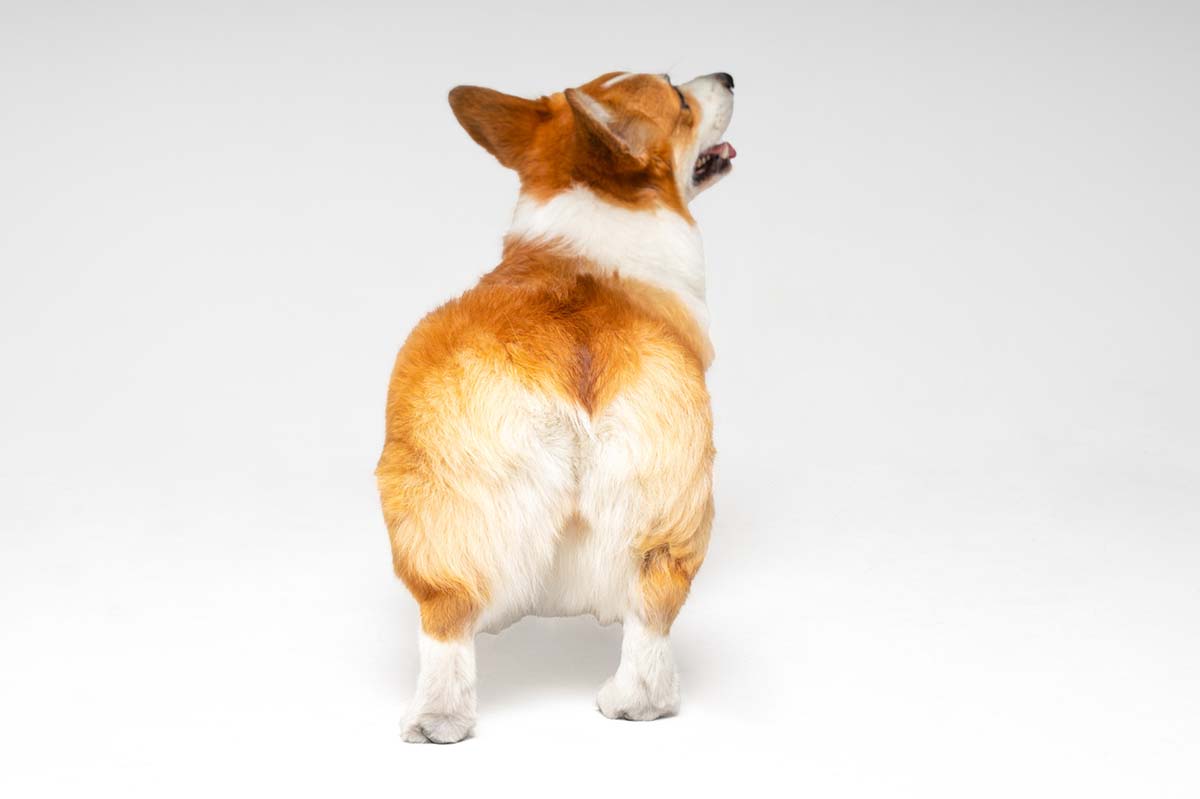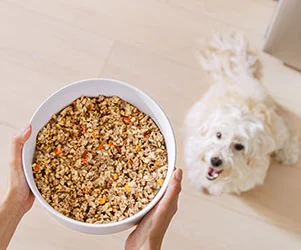Ever ask yourself: Why is my dog so gassy? In this post we’ll explore common reasons your dog is farting so much and what you can do about it.
Dogs who have excessive flatulence can be a pretty stinky experience for pet owners, but does extra gas in dogs mean something more? There are a handful of common reasons your dog may have excessive gas, and knowing the causes is the first step to getting your pup to be less of a stinker.
Why Is My Dog Farting So Much? Common Causes of Dog Gas.
While normal dog flatulence is nothing to worry about, bad gas or the buildup of gas in dogs is no fun. Figuring out the cause of your furry friend’s flatulence will help you know what to do about it.
Change in Diet

A change in your dog’s diet is the most common reason dogs experience an increase in gas. Whether changing your dog’s kibble or adding a new food to vary their diet, sometimes their digestive system needs time to adjust. Staggering the addition of new food or changing the type of dog food you serve may help reduce change-related dog gas.
Digestive issues
Digestive issues are another common cause of gas in dogs. Inflammatory bowel disease (IBD) is a medical condition where your dog’s gastrointestinal tract becomes inflamed. This can come from a reaction to a parasite or bacteria, or a bad reaction to certain proteins in their diet. IBD can result in poor digestion, which may lead to an increase in flatulence from Fido.
Irritable bowel syndrome (IBS) may be another culprit of excessive gas. This is where your dog’s intestinal muscles struggle to function normally. It may lead to issues like diarrhea or constipation and of course, flatulence. In dogs, IBS is often stress or anxiety-related.
Food Allergies
Food allergies in dogs may cause a number of symptoms to occur, including excessive gas. When your dog has an allergic reaction to food, their digestive system is under stress. This may cause gastrointestinal issues like vomiting, diarrhea, and of course, an increase in gas production.
Introduce new foods slowly and make sure the human food you share is safe for dogs are two ways to prevent food allergies from affecting your dog too seriously.
Food Intolerance
While your dog may not be fully allergic, there are certain human foods that your dog may not digest well. Common examples of these types of foods can be dairy products for dogs with lactose intolerance, spicy foods, and soybeans. High-fiber foods like Brussels sprouts may also cause an increase in dog gas.
In general, these foods are fine in moderation, but if you’re noticing an increase in gas production after sharing them with your dog you may want to consider holding off.
Swallowed Air
When your dog eats or drinks water, they also ingest small amounts of air. Respiratory diseases may cause dogs to swallow air in high enough amounts to lead to gas, as well as feeding your dog too soon after exercising if they haven’t had a chance to catch their breath.
Certain types of dogs known as brachycephalic breeds have shorter heads and tend to swallow more air while they’re eating or drinking because of the way their noses are positioned on their face. Examples of these types of dogs include bulldogs, pugs, and Boston terriers.
How Can I Help My Gassy Dog?

Pet parents who want to help their pup be less stinky have several simple, at-home options for decreasing their dog’s flatulence. Here are some steps to ensure your dog’s digestive tract is healthy and happy (and as fart-free as possible).
Choose High-Quality Dog Food
One of the best ways to keep your dog’s digestive tract healthy (and avoid smelly gas situations) is by providing them with a consistent, high-quality diet. Your dog’s diet should include varied sources of nutrition, including proteins, carbohydrates, vitamins, and minerals. Fresh dog food is made from only whole ingredients and is perfectly balanced to meet your dog’s nutritional needs.
Stagger New Foods
Sudden change in diet is one of the most common causes of flatulence in dogs. When transitioning your dog to a new food or adding a new food to their diet, start by slowly replacing a small amount of their old food with the new food, and increasing the new food to old food ratio over the course of at least a week.
Add Probiotics To Your Dog’s Diet
Since an imbalance in gut bacteria may cause excessive gas in dogs, adding a probiotic to their diet may help counteract bad bacteria that cause gas. Probiotics and supplements like omega-plus supplements for dogs may help increase your dog’s nutrient intake and help regulate digestive health.
Don’t Share Table Scraps
There are plenty of human foods that are safe to share with your dog, though some of them (like Brussels sprouts) may contribute to your dog passing gas. It’s often not the foods themselves but the oils, seasonings, and other flavors in human foods that can be irritating to your dog’s digestive system.
Manage Your Dog’s Meals
If your dog ingests a lot of air when they eat or drink, it can build up in their system and come out as gas. Sometimes this might look like burping since the air went in through their mouth, but it can also come out the other end as smelly gas.
Make sure your dog is able to breathe clearly and deeply before mealtime. Dog owners of brachycephalic breeds might also want to try a slow-feeder bowl for dog food that releases only a certain amount and helps your dog take their time eating. You can also try feeding your dog smaller meals more often instead of large meals once or twice per day.
This content is for informational use only and does not replace professional nutrition and/or medical advice, diagnosis, or treatment. It is not a substitute for and should not be relied upon for specific nutrition and/or medical recommendations. Please talk with your veterinarian about any questions or concerns.
“Inflammatory Bowel Disease in Dogs.” n.d. Vca_corporate. https://vcahospitals.com/know-your-pet/inflammatory-bowel-disease-in-dogs.
“Irritable Bowel Syndrome in Dogs (IBS).” n.d. Www.petmd.com. https://www.petmd.com/dog/conditions/digestive/c_dg_irritable_bowel_syndrome.


